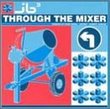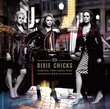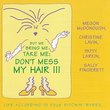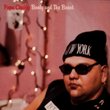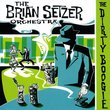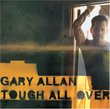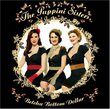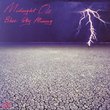| All Artists: John Fahey Title: Legend of Blind Joe Death Members Wishing: 6 Total Copies: 0 Label: Takoma Release Date: 9/3/1996 Genres: Country, Blues, Folk, Jazz, Pop Styles: Traditional Blues, Acoustic Blues, Traditional Folk, Contemporary Folk, Traditional Jazz & Ragtime Number of Discs: 1 SwapaCD Credits: 1 UPCs: 025218890120, 029667980227 |
Search - John Fahey :: Legend of Blind Joe Death
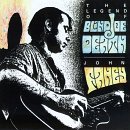 | John Fahey Legend of Blind Joe Death Genres: Country, Blues, Folk, Jazz, Pop
|
Larger Image |
CD DetailsSimilar CDs
Similarly Requested CDs
|
CD ReviewsDo not go gentle . . . vxppl | GA United States | 05/07/2001 (5 out of 5 stars) "Now that John Fahey has left to contemplate the Void from the other side, it's time to consider his achievement. Ignore the peripheral--Fahey's rediscovery of legendary Delta blues players, his influence on other musicians, his cult-like status as enfant terrible/genius, the tragic path of his life--and listen to the music here. (An aside to those who complain that Fahey lacks the authenticity of his predecessors: get real. Fahey is no more a blues guitarist than James Joyce is an ancient epic poet because he alludes to Homer. The comparison is pointless.) Cerebral, delicate, irrascible, wistful, earthy, contemplative, laconic, spiritual, desolate, joyous: these are the songs of an artist angry at the world because he loved it so much. All is unreconciled, all is reconciled; In Christ There Is No East or West. Through his original works, Fahey contributed some of the century's most remarkable songs:"Sun Gonna Shine in My Back Door Someday Blues" leaps from raga to ragtime and back in what seems to be a simple conversation, until you realize the two sides are yin and yang, the same because the opposite."Sligo River Blues" opens with a pensive, circular phrase, then melds the uptempo rhythm of a nineteenth-century parlor song (e.g. Bicycle Built for Two) with nostalgic, melancholy chord changes--a mutually enobling sadness and beauty, a' la early Yeats."The Transcendental Waterfall," here in its original 10-minute length, anticipates the course of Fahey's work and life: restless, complex, dissatisfied; yearning for transcendence, finding it within the quest, not at its abrupt end; memorializing forever the young boy who, entranced by the score of the movie Thief of Baghdad, took up the guitar to recapture that lost magic.The earlier takes here (tracks 1-9) are not merely for the scholar obsessed with footnotes; comparing the 1964 versions with those from 1967, you can better understand the architectural feat of the latter masterworks. If you own the 1967 original, buy the compilation, if only for the Transcendental Waterfall and the liner notes. If you're new to Fahey, ignore the samples here and beg, borrow, or buy this cd. Life's too short for lesser music." The stuff of legends George H. Soule | Edwardsville, Illinois United States | 11/16/2002 (5 out of 5 stars) "This record should be required listening for anyone interested in playing acoustic blues, and it is a magnificent place for an interested listener seeking an introduction to the genre. This disc collects incarnations of Blind Joe Death, John Fahey's fictional and representative blues guitar master in varied modes and recording sessions. The two incarnations here are from 1963 and 1967--two sets of Blind Joe's songs--all instrumentals, by the way--two versions each of nine songs. Then there are additional tracks, including Fahey's "Trannscendental Waterfall" and Blind Blake's "West Coast Blues." For some that might be too much, but this is the legend after all. And this is a good place to hear the development of Fahey's special guitar voice. Fahey began by recreating and like all original voices, found that he was creating indeed. This is a collection of blues with a spiritual or rag thrown in when the spirit strikes. You're never sure who you are going to hear--Skip James, Gary Davis, John Hurt, Pink Anderson, Robert Johnson--Delta blues, some Piedmont--a potpourri of styles. First Fahey commanded the idiom. His technique is a panoply of flat and finger picking styles, including the pattern picking with open tunings that he learned from Skip James and John Hurt. But his uses of the techniques are sometimes surprising. Once he learned the licks, the patterns, the fingerings, he expanded for his own purposes. As the fictional Blind Joe, Fahey played some blues standards, interpreting them to suit his tastes and voice. Fahey's versions of W.C. Handy's "St. Louis Blues" are distinctive. I say "versions" because there are two forms here, and the two sessions allow you to hear how Fahey grew between 1963 and 1967. The later recordings are clearer and more confident in their attack and accents. But they aren't necessarily "better," just different. The collection includes original songs such as "On Doing an Evil Deed Blues," "Poor Boy Long Ways from Town," "Desperate Man Blues," and some arrangements of known songs like "John Henry." This last owes some debt to John Hurt's "Spike Driver's Blues" although the second version is more experimental. When he is covering old blues songs, his recreations of the standards are convincingly authentic. In the original songs, Fahey uses the techniques, the methods of legendary figures and blends them in such a way that his originals are almost indistinguishable in style from the genuine article. This is the early John Fahey, before he diversified completely to blend the folk/blues idiom with eastern music and sonic experiments in texture and time. It is, nevertheless, a wonderful collection." An Essential CD for All Finger Style Guitar Enthusiasts Steve Vrana | Aurora, NE | 01/02/2000 (5 out of 5 stars) "I first discovered John Fahey via Leo Kottke on Fahey's own Takoma label on the "Leo Kottke/ Peter Lang/John Fahey" LP. On the back jacket is this notice: "Takoma Records is widely ignored as a freckle on the soft white underbelly of the record business. Intrepid and enterprising, this indigestible little company has an unblemished record. The unblemished record can be seen in its glass case at the Takoma archives between the hours of 6 midnight and 12."Fahey's humor aside, it's probably true that few people have ever heard of Fahey or his music and that is a shame. I would agree with the other reviewer that there would be no Leo Kottke without John Fahey, just like there would be no Rolling Stones without Chuck Berry or Howlin' Wolf, or no Oasis without the Beatles. It's fine to enjoy the imitators, but why wouldn't you seek out the originals?Twenty years ago I purchased my first John Fahey album: The Best of John Fahey 1959-1977(now out of print). It included two tracks from Blind Joe Death: "St. Louis Blues" and "In Christ There Is No East or West" (the latter I first heard on Kottke's Greenhouse). I was hooked. I had to get my hands on all the John Fahey I could find. (Not an easy task, since he recorded for several labels other than his own and his albums quickly went out of print.) However, I found all of his Takoma and Vanguard LPs and even his two Reprise albums (Of Rivers and Religion and After the Ball), but not without having to enlist the services of record search companies. But it was worth it!And Blind Joe Death is perhaps his best. First recorded in 1959 and all of 95 copies pressed it was quickly forgotten. He re-recorded the songs in 1964 and again in 1967. Now with this CD re-release, you essentially get both of these versions on one CD.Like almost all of Fahey's solo guitar excursions, his folk and rural blues-influenced music has an exhilirating and haunting quality to it. It's too bad more people haven't heard his music. However, I rented the video The Horse Whisperer last week and (surprise!) during one of the scenes they used "Desperate Man Blues." Buy this CD and prepare to be dazzled. ESSENTIAL"
|

 Track Listings (21) - Disc #1
Track Listings (21) - Disc #1